Try These Creative Ways to Get More Fruits and Veggies Into a Senior’s Diet
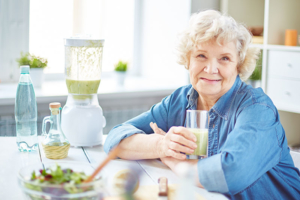
Learn how to add fruits and veggies into a senior’s diet.
It’s no surprise that many seniors, just like anyone else, prefer carbs to carrots, making it challenging to guarantee that their nutritional needs are being met. The CDC shares that just one in ten seniors are meeting the recommendation of at least three servings of vegetables and two servings of fruit every day. Many researchers have reported that seniors who do follow these guidelines reduce their risk for diabetes, heart disease, and other chronic health issues, and subsequently live longer lives.
Maybe it’s time to think outside of the box to promote healthier eating habits in a senior’s diet. For example:
Make it crunchy. There are so many nutritious alternatives to greasy potato chips for a crispy snack or as a side to enjoy with a sandwich. Pick up a few for the older adult in order to see which ones they prefer: kale, sweet potato, beet, radish, green bean, eggplant, and much more. Or try freeze-dried fruit, another crunchy and nutritious alternative.
Make it smooth. If you’re looking to add a few superfoods to a senior’s diet, smoothies and sauces are great ways to do so. You can create a refreshing, delicious drink by blending a little spinach, yogurt, and fresh fruit. Or experiment with pureeing different vegetables to mix in with marinara sauce: zucchini, carrots, kale, bell peppers, etc.
Opt for convenience. Slicing, peeling, chopping, cooking – the numerous steps needed to prepare some vegetables and fruit make it easier to just grab a prepackaged snack. Try to find healthy alternatives that are just as easy to grab and enjoy, like ready-to-eat salads, baby carrots, or other cleaned and sliced veggies, individual cups of fruit, bananas, etc.
Freeze it up. Make your own simple, healthy frozen snacks by blending fruit with a small amount of juice or water, pouring into popsicle molds, and freezing until solid. These also make a wonderful multi-generational activity! Invite the family members over, let everyone choose their favorite flavor to make, and then spend some quality time together as you wait for them to chill before enjoying your personal creations.
Join a CSA. If you’ve never considered a CSA, now is an ideal time to explore this option. A CSA (community supported agriculture) is a subscription service for fresh produce from local farmers. Discover more and find a CSA near you here.
Responsive Home Care’s caregivers are skilled in preparing delicious, healthy meals based on each person’s individual preferences. We are available to pick up all of the ingredients too! Just give us a call at (954) 486-6440, or contact us online for assistance with enhancing a senior’s diet with the help of our elderly home care in Hollywood, FL and the nearby areas.

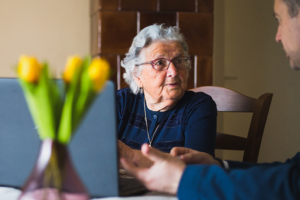



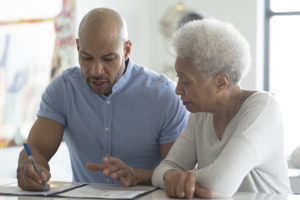
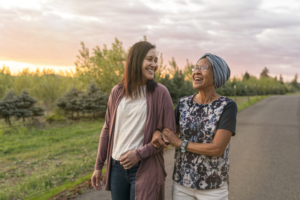
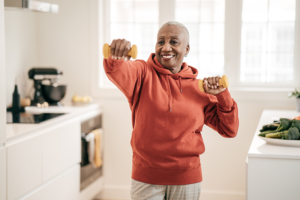
 If it feels like a senior with
If it feels like a senior with 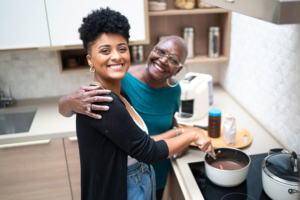 If someone were providing
If someone were providing 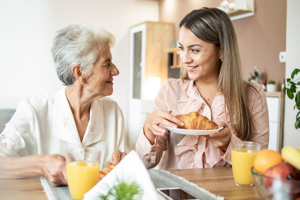 Life, especially but not just during the pandemic, can be filled with uncertainty. For seniors who are feeling less in command of particular facets of life, such as losing physical or cognitive functioning, concentrating on what can be controlled is empowering.
Life, especially but not just during the pandemic, can be filled with uncertainty. For seniors who are feeling less in command of particular facets of life, such as losing physical or cognitive functioning, concentrating on what can be controlled is empowering.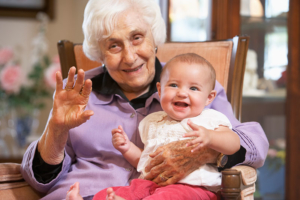 Watch what occurs at your next family get together when a new mom places her infant in someone’s arms. The individual is likely to transition instantly into baby mode: a high-pitched, sing-song voice, exaggerated facial expressions, and overly-simplified speech. Of course, this is quite normal and actually beneficial to a
Watch what occurs at your next family get together when a new mom places her infant in someone’s arms. The individual is likely to transition instantly into baby mode: a high-pitched, sing-song voice, exaggerated facial expressions, and overly-simplified speech. Of course, this is quite normal and actually beneficial to a